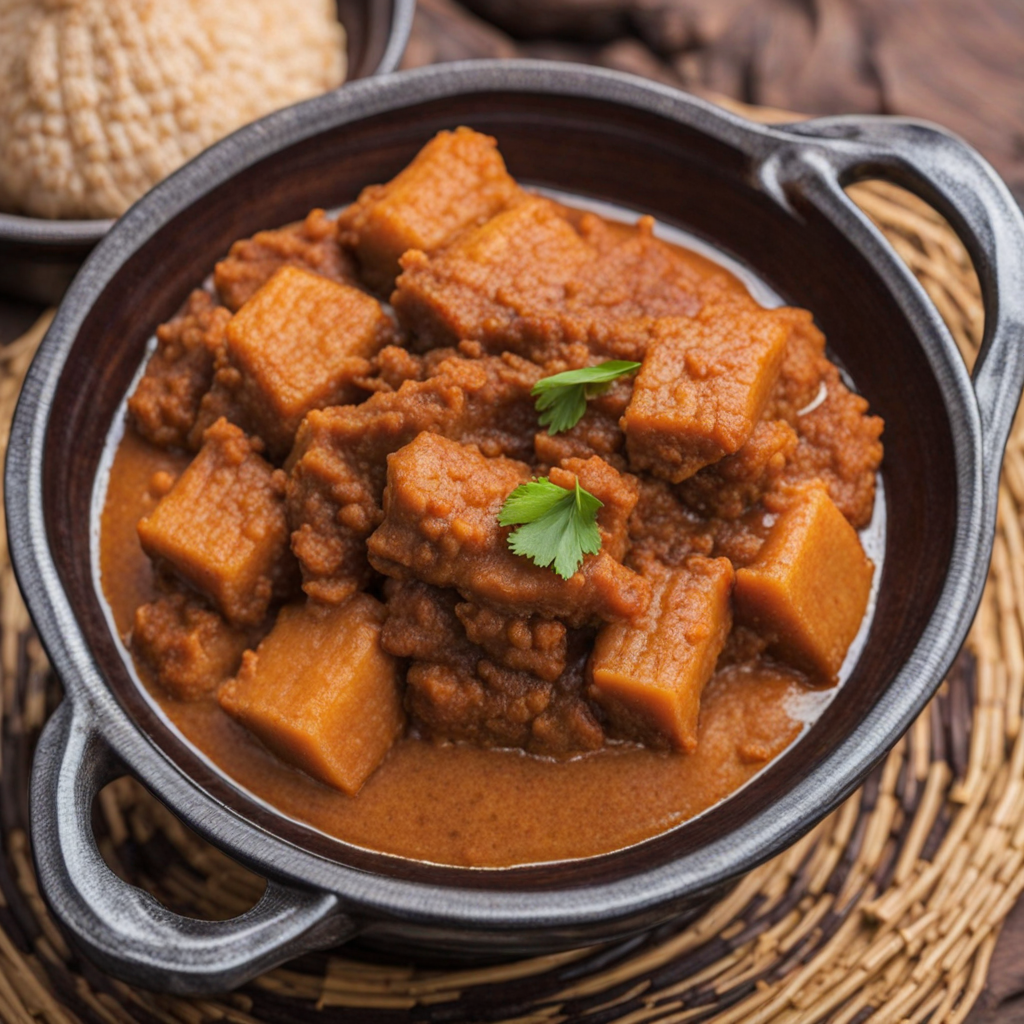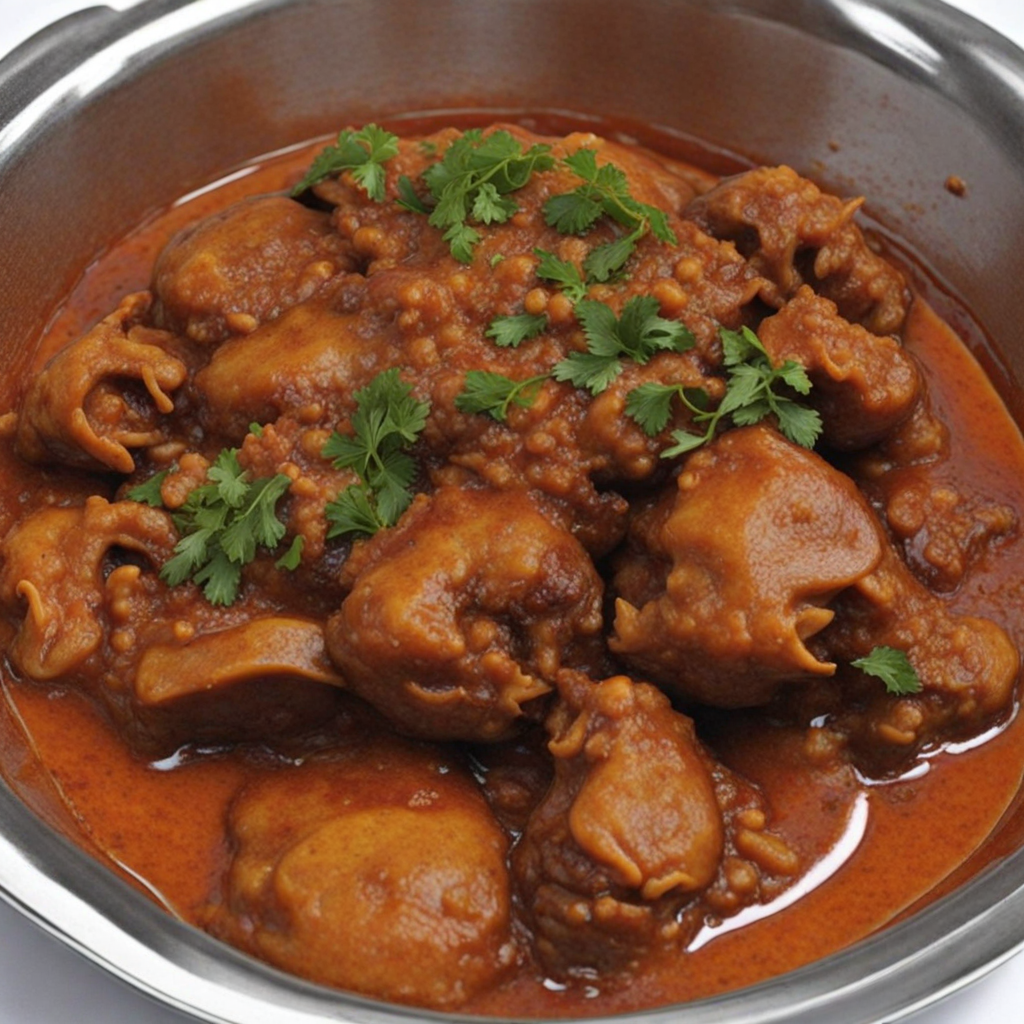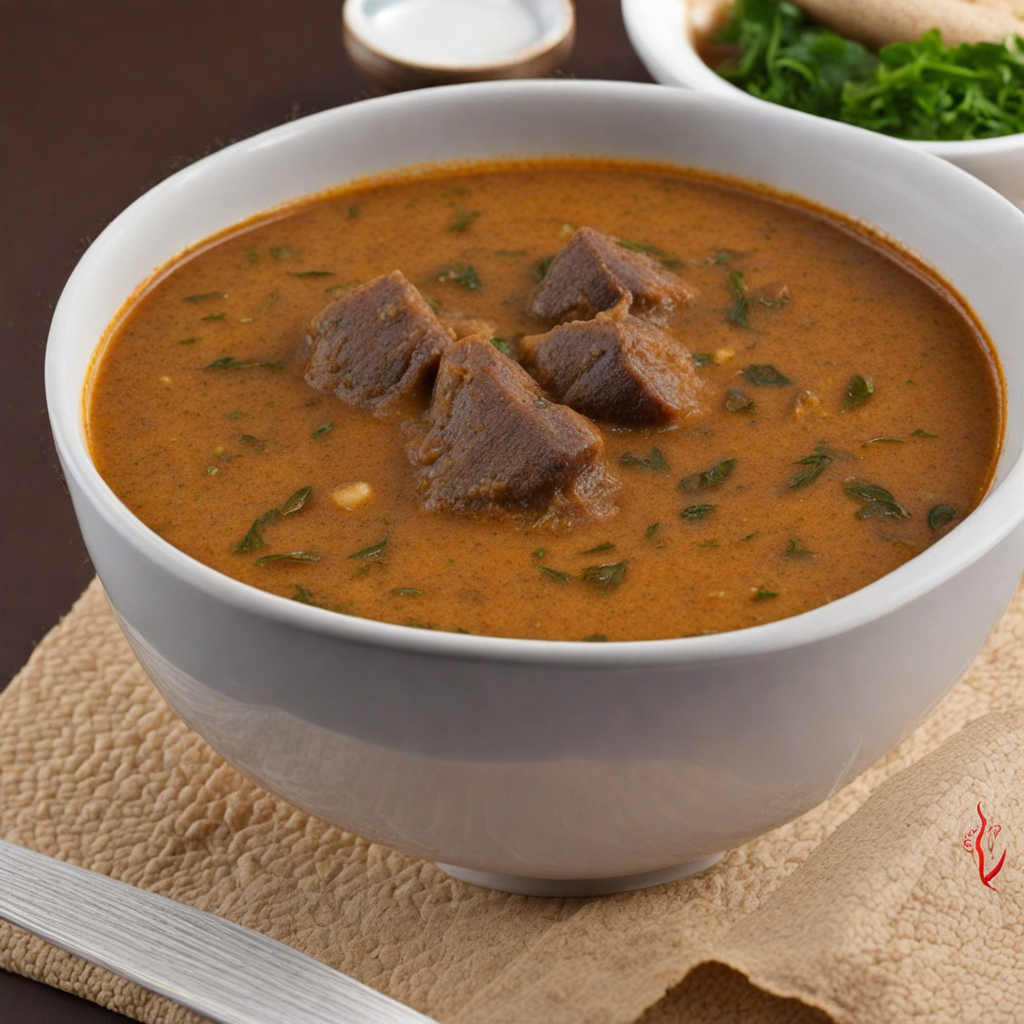Ikokore
Ikokore is a traditional Nigerian dish hailing from the Yoruba culture, primarily enjoyed in the southwestern region of the country. It is a delightful mixture of grated yam, which serves as the base of the dish, and is often prepared with a variety of proteins such as fish or meat, and flavored with a medley of spices. The grated yam is known for its unique texture, which becomes soft and slightly sticky when cooked, making it a perfect canvas for absorbing the rich flavors of the accompanying ingredients. The dish is typically seasoned with spices like pepper, onions, and sometimes locust beans, giving it a distinctive aroma and a vibrant taste that speaks to the heart of Nigerian cuisine. What makes Ikokore truly special is its cooking method, which involves steaming the yam in a pot, allowing the flavors to meld beautifully while retaining the moisture and essence of the ingredients. The dish is often layered, with the grated yam forming the base and the proteins and spices layered on top, creating a visually appealing and flavorful meal. The steaming process also enhances the natural sweetness of the yam, making each bite a pleasant balance of savory and slightly sweet notes. Ikokore is often served with a side of rich spicy sauce or a pepper soup, which complements the dish perfectly and elevates the overall dining experience. Ikokore is more than just a meal; it is a cultural experience that reflects the communal nature of Nigerian dining. It is often enjoyed during special gatherings and celebrations, bringing people together to share not just food but also stories and laughter. Each family may have its own unique twist on the dish, incorporating various local ingredients or personal touches, which adds to the charm and diversity of Ikokore. For anyone looking to explore new culinary landscapes, Ikokore offers a deliciously unique taste of Nigeria that promises to satisfy both the palate and the spirit.
How It Became This Dish
The Rich History of Ikokore: A Culinary Delight from Nigeria Ikokore, a traditional dish hailing from the Yoruba ethnic group of Nigeria, is a captivating culinary creation that showcases the rich tapestry of Nigerian culture and heritage. This unique dish, primarily made from grated cocoyam (also known as taro), is often prepared with a variety of ingredients, including fish, meat, and spices, and is renowned for its delightful texture and flavor. To understand the journey of Ikokore, we must delve into its origins, cultural significance, and its evolution over time. Origins of Ikokore The roots of Ikokore can be traced back to the southwestern region of Nigeria, particularly among the Yoruba people. The Yoruba culture is characterized by its rich agricultural practices, which include the cultivation of cocoyam. This starchy tuber thrives in Nigeria’s tropical climate and has been a staple food for centuries. The name “Ikokore” itself can be loosely translated to mean “grated cocoyam,” reflecting its primary ingredient and method of preparation. Cocoyam is highly regarded not just for its culinary versatility but also for its nutritional value. It is rich in carbohydrates, vitamins, and minerals, making it an essential part of the diet for many communities. Traditionally, Ikokore was prepared during communal gatherings, festivals, and special occasions, symbolizing unity and cultural heritage. The act of grating the cocoyam was often a communal activity, involving family and friends, and thus fostering social bonds within the community. Cultural Significance Ikokore is more than just food; it embodies the cultural identity of the Yoruba people. The dish is often associated with celebrations and rituals, such as weddings and annual festivals. Its preparation and consumption are imbued with cultural practices that emphasize hospitality and generosity. When Ikokore is served, it signifies that guests are honored and respected, reflecting the Yoruba value of communal sharing. Moreover, Ikokore serves as a culinary representation of the Yoruba people’s relationship with nature. The use of locally sourced ingredients, such as fish from nearby rivers and spices from local markets, illustrates the community’s reliance on their environment and the sustainable practices that have been passed down through generations. The dish is often prepared with a variety of proteins, including catfish or meat, which further enhances its flavor and nutritional profile. In addition to its social and cultural significance, Ikokore also plays a role in the preservation of Yoruba history and oral traditions. Recipes and cooking techniques have been handed down from generation to generation, often accompanied by stories and folklore. This transmission of knowledge not only preserves culinary practices but also strengthens the cultural identity of the Yoruba people. Development Over Time As with many traditional dishes, Ikokore has evolved over time while retaining its core essence. The advent of globalization and urbanization has influenced the way Ikokore is prepared and consumed. In the past, the dish was typically made using traditional methods, with cocoyam grated by hand and cooked over an open flame in clay pots. However, modern advancements, such as the use of electric graters and gas stoves, have made the preparation process quicker and more efficient. The ingredients used in Ikokore have also diversified over the years. While the traditional recipe primarily features cocoyam, fish, and spices, modern variations may include additional ingredients such as shrimp, crayfish, and various vegetables. This adaptability has allowed Ikokore to remain relevant in contemporary cuisine, appealing to a broader audience while still honoring its roots. Additionally, the rise of the Nigerian diaspora has played a significant role in popularizing Ikokore beyond the borders of Nigeria. As Yoruba people migrate to different parts of the world, they carry their culinary traditions with them. Restaurants and food festivals showcasing traditional Nigerian cuisine have emerged in cities across the globe, introducing Ikokore to new audiences and creating a fusion of flavors that celebrate its heritage while incorporating elements from other cultures. Contemporary Trends In recent years, there has been a resurgence of interest in traditional Nigerian cuisine, with chefs and food enthusiasts seeking to revive and promote dishes like Ikokore. Social media platforms have become a powerful tool for sharing recipes, cooking techniques, and cultural stories, allowing younger generations to connect with their culinary heritage. Influential food bloggers and chefs have highlighted Ikokore in their culinary narratives, showcasing its unique flavors and cultural significance. Furthermore, the growing movement toward sustainable and locally sourced food has also benefited dishes like Ikokore. As more people become aware of the advantages of using fresh, local ingredients, the demand for traditional dishes made from native crops has increased. This trend not only supports local farmers but also reinforces the cultural identity associated with traditional foods. Conclusion Ikokore is a dish that encapsulates the rich history and cultural significance of the Yoruba people of Nigeria. Its origins in the agricultural practices of the region, coupled with its role in social and communal gatherings, reflect the deep-rooted traditions that have shaped the identity of the Yoruba culture. As Ikokore continues to evolve, adapting to contemporary tastes and global influences, it remains a cherished culinary treasure. Through the preservation of traditional recipes and cooking methods, as well as the celebration of its cultural significance, Ikokore stands as a testament to the power of food in connecting people to their heritage. In a world that is constantly changing, the enduring legacy of Ikokore serves as a reminder of the importance of honoring our culinary past while embracing the future. Whether enjoyed at a family gathering, a festive celebration, or in a restaurant abroad, Ikokore remains a delicious emblem of Nigerian culture, inviting all to experience its rich flavors and traditions.
You may like
Discover local flavors from Nigeria







